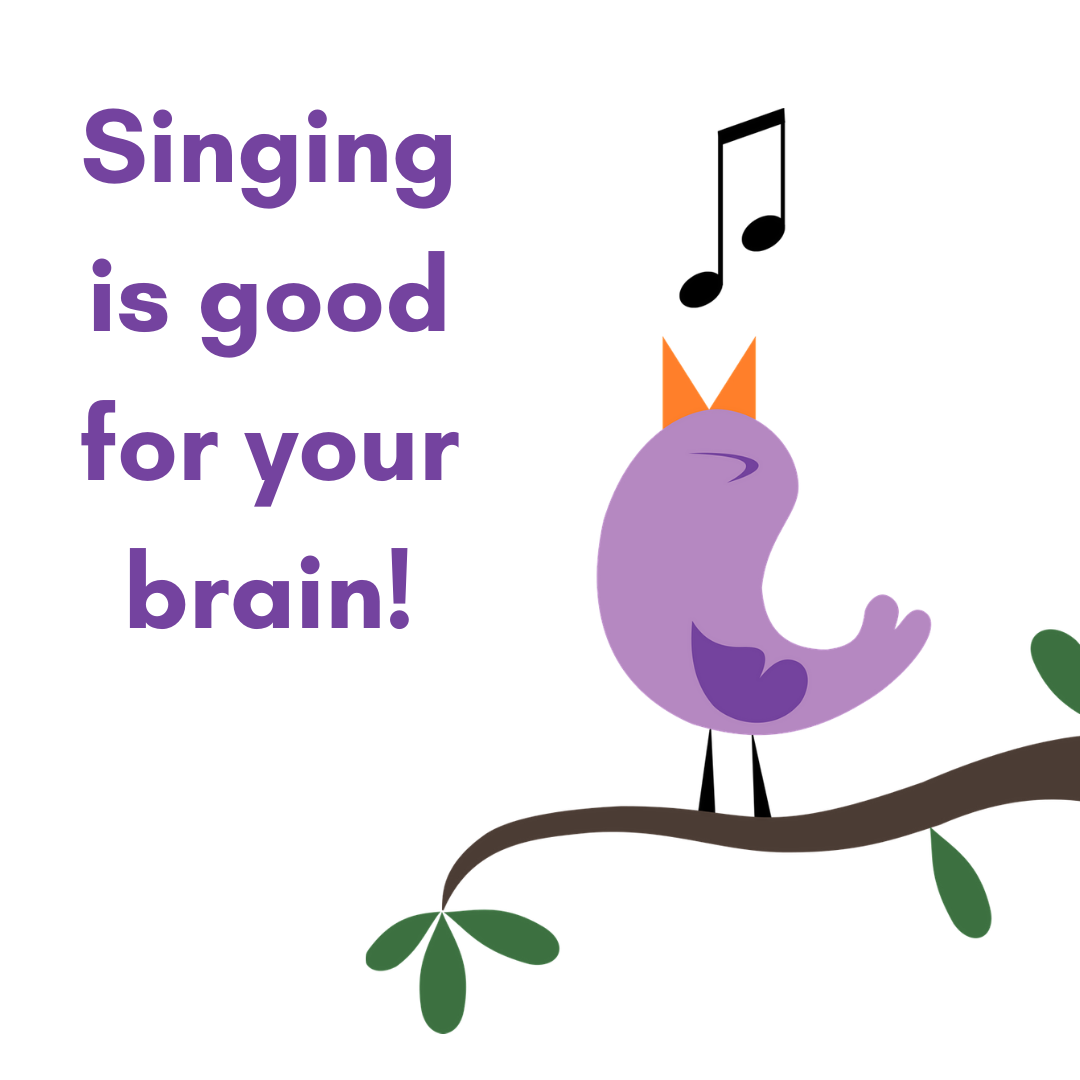Blog
Technology Tension in the Fingers
Given all of our technology time, even more so throughout the quarantine, I find great pleasure in articulating through my fingers and moving my wrist and forearm in very specific and controlled ways. F
Practicing the "Wrong" Ankle Movement
This supposedly helps prevent the ankle from rolling out (inversion) which, when done without control and under load, can often lead to a lateral ankle sprain. However, our ankle/foot complex has this range of motion naturally, and to never explore that range means that when we do happen to roll out when trying to balance or landing from a jump, our brain has no established pathway to bring the ankle back to neutral.
Sing for your brain!
We started trading lessons (movement for voice) over a year ago, and I am thoroughly enjoying singing, both for the joy and for the increased body knowledge that I am gaining about breathing, the throat, the vocal cords, etc. Even more importantly, my brain LOVES it when I sing — I feel amazing after every session.
"Don't Hold Your Breath"
While I still have a lot to learn about how breathing works in the body, I have come to recognize that for many people whose breathing is dysfunctional (perhaps they chronically hyperventilate or are mouth breathers), taking deep breaths is actually counter-productive.
Exhale for calm
Breath work is especially important right now to keep our respiratory systems healthy, but breathing focusing on the exhale helps to increase vagus nerve stimulation and calm our bodies’ fight-or-flight responses.
Working with Hypermobility
I am a dancer and I teach a lot of dancers, many of whom (including myself) have one or many hypermobile joints, meaning joints that have more mobility than the norm. While dancers often consider this a bonus, as it may increase their observable flexibility, the reality is that joints that are hypermobile are harder to sense (through proprioception) and therefore harder to control.
Finding the Right Exercises for YOU
I’ve learned, since starting my own Z-Health studies, that not every exercise is good for everyone, and understanding neurology is critical to knowing how to prescribe the right exercises.
Work Your Eye Muscles!
Each eye has six muscles that create/control the movement of the eye in its socket. These muscles act like any other muscles in the body — they can get weak, strong, tight, or tense.
In this time
Now, teaching class and working with clients involves sitting in front of a screen, with occasional demonstration and movement. But not nearly the variety I was getting before. And my body can feel it.
Truly walking again
After nearly two months walking the pavement and sidewalks in our neighborhood, I finally ventured out on a trail yesterday morning for a hike — and it was wonderful!
Online Classes are Here!
I've finalized my weekly schedule for these classes! Join me Tuesdays at 2:00pm and Thursdays at 12:00pm (Arizona time). You can come to one, several or all - they're not cumulative and don't require prior experience.
Always Learning!
I had a great time this weekend re-attending T-Phase with Dr. Cobb and Z-Health Performance!
Neuro-Focused Teaching
This weekend I was fortunate enough to be teaching a neuro-focused workshop with my colleagues, where we explored how we can apply neuroscience to specifically improve spinal motion, and we saw some great changes. I love the brain!!
Hearing & Memory
I came across a recent study discussing the effects of hearing loss in older populations. Rather than just discussing the actual loss itself, the study looked at how hearing loss influenced participation in outdoor activities, led to psychological distress, and increased memory loss.
A Plan for My Brain
Not only did I learn a HUGE amount of information about nervous system anatomy, function and assessment, I also learned a lot about my own nervous system. Suffice it to say that I have some work to do!
Not All Movement Feels Safe to Your Brain
Given that I am aware of how the brain works and how it responds to threat, I ended the class with an equal mixture of wanting to burst out crying and wanting to laugh at the ridiculousness of how threatening the whole experience was for me.
Reach the Vagus Nerve Through the Ear
Another interesting study just came out about the vagus nerve -- this time relating vagus nerve stimulation to a decrease in symptoms of rheumatoid arthritis (RA)!
Assess Yourself Before You Wreck Yourself
Your brain's job is to keep you safe, and it has a lot of ways of doing that through what we call outputs. Pain, weakness, loss of coordination, nausea, dizziness, muscle tension and loss of balance are all potential outputs that the brain can create as a way to protect you from hurting yourself.
Changes!
When I began this site, I had just finished training in biomechanics and was intensely focused on how improving alignment and mechanics can cause improvements in health and movement. While my appreciation of alignment has not changed, I have spent the past 2.5 years delving into the nervous system.
Taking My Eyes for a Walk
I've known for years that our eyes are important for balance, both reflexively (the body has "righting reflexes" designed to keep us upright) and simply in sensing our body's position in space. But recently I've started to understand just how critical our eyes are, not just for balance, but for our neurological (and therefore overall) health.
Subscribe to blog posts from Synapse in Motion
**Your information is never shared or sold.




















